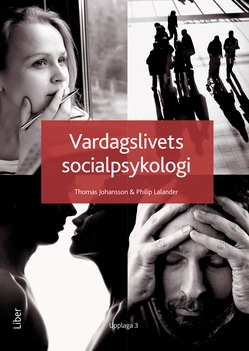

The Descriptive Phenomenological Method in Psychology
- Utgiven: 2009
- ISBN: 9780820704180
- Sidor: 247 st
- Förlag: Duquesne University Press
- Format: Häftad
- Språk: Engelska
Om boken
Åtkomstkoder och digitalt tilläggsmaterial garanteras inte med begagnade böcker
Mer om The Descriptive Phenomenological Method in Psychology (2009)
I juni 2009 släpptes boken The Descriptive Phenomenological Method in Psychology skriven av Amedeo Giorgi. Den är skriven på engelska och består av 247 sidor. Förlaget bakom boken är Duquesne University Press.
Köp boken The Descriptive Phenomenological Method in Psychology på Studentapan och spara pengar.
Referera till The Descriptive Phenomenological Method in Psychology
Harvard
Oxford
APA
Vancouver



















